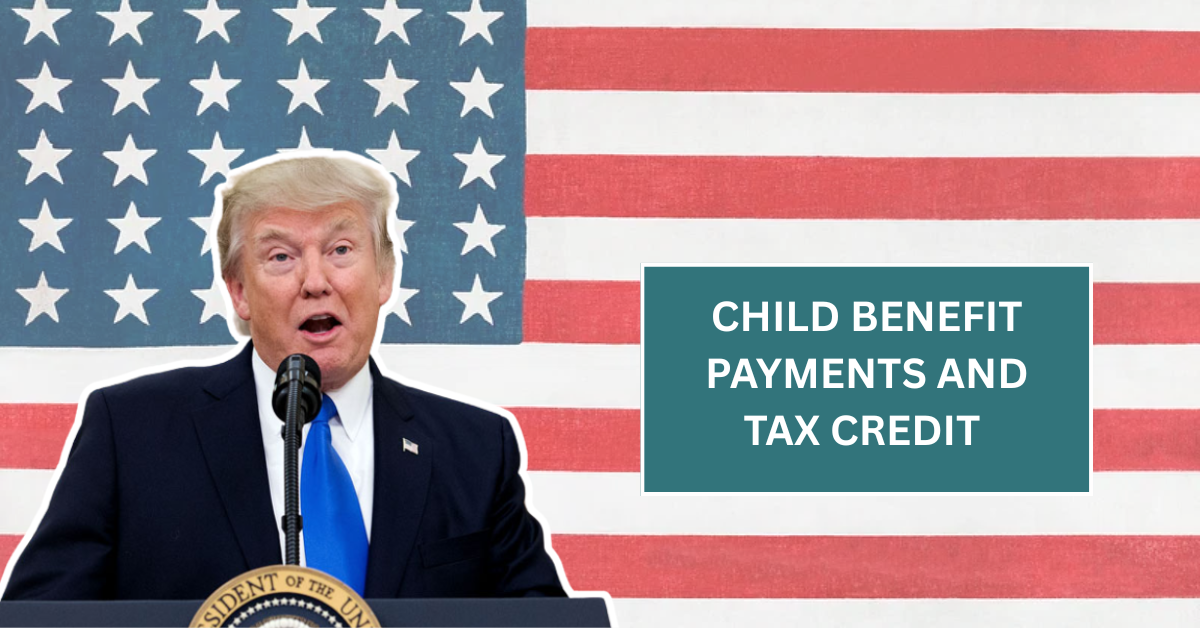Many families in the UK receive financial support through Child Benefit Payments and Tax Credits. These benefits help with the costs of raising children, but sometimes households may receive both payments at the same time. Understanding how these benefits overlap is important, especially for managing your finances and avoiding any confusion.
This article explains what happens when you get both Child Benefit and Tax Credits, what you should expect on 17 July, and how to handle any double deposits or overpayments. We aim to provide simple guidance to help families keep track of their benefits without stress.
What Are Child Benefit Payments?
This Article Includes
- 1 What Are Child Benefit Payments?
- 2 Understanding Tax Credits
- 3 How Child Benefit and Tax Credits Overlap
- 4 What to Expect on 17 July
- 5 Managing Double Deposits or Overpayments
- 6 Importance of Reporting Changes
- 7 How to Keep Track of Your Benefits
- 8 Final Tips for Families Receiving Both Child Benefit and Tax Credits
Child Benefit is a government payment given to families with children to help cover the costs of raising them. It is usually paid monthly and is available to most families regardless of income. The amount depends on how many children you have, with higher payments for the eldest child and smaller amounts for additional children.
This benefit is separate from Tax Credits but can sometimes be received alongside them. Many families appreciate Child Benefit because it provides steady financial support each month.
Understanding Tax Credits
Tax Credits are another type of government support offered to families with lower income levels. They aim to help with the costs of raising children or caring for people with disabilities. Tax Credits include Child Tax Credit and Working Tax Credit. Unlike Child Benefit, Tax Credits are means-tested and depend on your income and situation.
Families might receive Tax Credits monthly or as a lump sum, depending on how their support is arranged and reported to the authorities.
How Child Benefit and Tax Credits Overlap
It is possible for households to receive both Child Benefit and Tax Credits at the same time. However, because the benefits have different purposes and payment systems, this can sometimes cause confusion. For example, the payments may arrive on different dates or in altered amounts, leading you to think there is an error.
When you are eligible for both, you should receive payments for each benefit, but it is important to understand that the amounts and schedules may not always align perfectly.
What to Expect on 17 July
On 17 July, some families might notice changes in their payments. This date is important because it often marks the start of a new tax year or a change in benefit rules and rates. Some payments may be recalculated, leading to a new amount being deposited into your bank account.
If you receive both Child Benefit and Tax Credits, you could see overlapping payments or adjustments on this date. This can feel like getting a double deposit or extra payment, but it is usually a temporary situation that will settle down within a few weeks.
Managing Double Deposits or Overpayments
If you notice double deposits or think you have been overpaid, the first step is not to panic. It is common during benefit payment transitions or when new rules take effect. Check your benefit statements carefully to confirm what money you should have received and what appears to be extra.
Contact the Child Benefit office or HM Revenue and Customs (HMRC) for advice. They can explain whether the extra money is due to an overlap, an error, or a timing issue. Keep records of all communication and payments to help resolve any confusion efficiently.
Importance of Reporting Changes
One key way to avoid overpayments is by updating your details when your financial situation changes. For example, if your income increases, your household composition changes, or you stop work, notify the relevant authorities. This ensures your Tax Credits and Child Benefit payments are accurate and appropriate.
Failing to report changes can lead to benefit overlaps and possible repayment requests later. Staying proactive helps you avoid financial surprises and keeps your benefits in good order.
How to Keep Track of Your Benefits
Keeping track of your benefits doesn’t have to be difficult. Use online accounts provided by HMRC and the Child Benefit office to view your payment history and any upcoming changes. Set reminders for important dates like 17 July so you can check your accounts and understand any payment variations.
You can also make a simple list of all your benefit payments with dates and amounts to monitor for any unexpected deposits. This habit makes it easier to spot errors early and get help if needed.
Final Tips for Families Receiving Both Child Benefit and Tax Credits
Remember, receiving both benefits is normal for many families and a valuable support for your household. Understanding how they work together will give you peace of mind and help you manage your money better. Always read official letters carefully, keep your contact details updated, and don’t hesitate to ask for help from government services.
By staying informed and organized, you can make the most of your benefits and avoid problems with overpayments or overlapping deposits.






